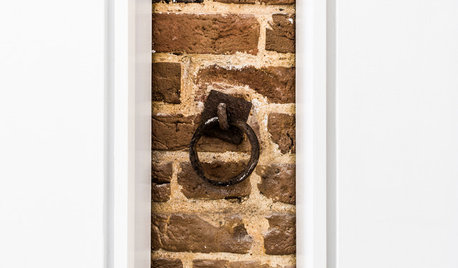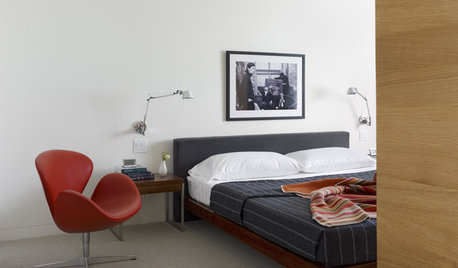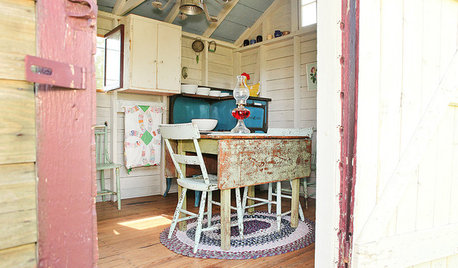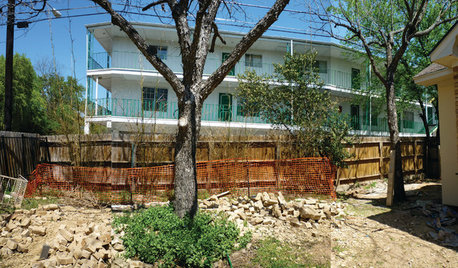Do you HAVE to remove honeybees from walls?
Alice Johannen
19 years ago
Related Stories

EDIBLE GARDENSA Formerly Weedy Lot Now Brims With Edibles and Honeybees
Photographers transform their barren backyard into an oasis filled with fruit, vegetables, honey, eggs and more
Full Story
LIFEYou Said It: ‘Rather Than Remove Them, They Framed Them’
Design advice, inspiration and observations that struck a chord this week
Full Story
LANDSCAPE DESIGNGarden Walls: Gabion Evolves From Functional to Fabulous
The permeable rock-, concrete- or glass-filled steel cages are showing up as retaining walls, planters, benches and more
Full Story
DECORATING GUIDESFrom the Pros: How to Paint Interior Walls
A slapdash approach can lower a room's entire look, so open your eyes to this wise advice before you open a single paint can
Full Story
TILETile From Around the Globe Adds Out-of-This-World Panache
Go ahead, let color and pattern run wild in your tile. Your walls, floors and countertops will say "thank you" in a whole new language
Full Story
ROOM OF THE DAYRoom of the Day: From Dark Basement to Bright Master Suite
Turning an unsightly retaining wall into an asset, these San Francisco homeowners now have a bedroom that feels like a getaway
Full Story
COLORPaint-Picking Help and Secrets From a Color Expert
Advice for wall and trim colors, what to always do before committing and the one paint feature you should completely ignore
Full Story
HOUZZ TOURSMy Houzz: A Backyard Getaway Emerges From a Grain Shed
Cozy and brimming with country charm, this snug antiques-filled hideout encourages quiet pastimes
Full Story
BEFORE AND AFTERS6 Dramatic Garden Makeovers, From Backyard to Rooftop
It's almost hard to believe how far these landscapes have come. Have a look and get ideas for your own garden transformation
Full Story
HOUZZ TOURSHouzz Tour: From Burned Down to Done Up in Las Vegas
A fire gutted this midcentury home — and laid the groundwork for a beautiful new floor plan
Full Story





maddalfred
Alice JohannenOriginal Author
Related Professionals
La Marque Landscape Architects & Landscape Designers · Aurora Landscape Contractors · Chesapeake Ranch Estates Landscape Contractors · Dallas Landscape Contractors · Gaithersburg Landscape Contractors · Galt Landscape Contractors · Hendersonville Landscape Contractors · Lake Saint Louis Landscape Contractors · Las Vegas Landscape Contractors · Longview Landscape Contractors · Methuen Landscape Contractors · Uxbridge Landscape Contractors · Weymouth Landscape Contractors · Markham Landscape Contractors · Irvington Landscape Contractorsmaddalfred
Alice JohannenOriginal Author
maddalfred
ccrb1
maddalfred
Alice JohannenOriginal Author
Alice JohannenOriginal Author
ccrb1
Alice JohannenOriginal Author
gmason
Alice JohannenOriginal Author
ccrb1
Alice JohannenOriginal Author
Min3 South S.F. Bay CA
gduke2
Konrad___far_north
duckduckshoot